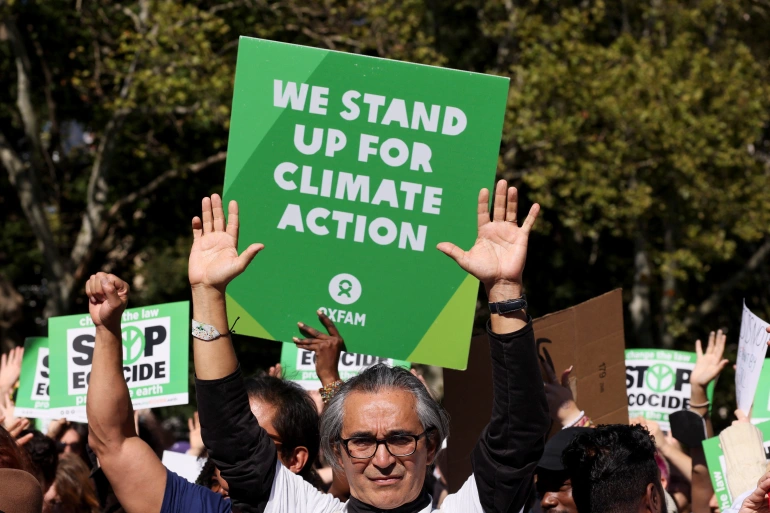Climate Crisis; The United Nations Climate Change department says that different governments should look upon measures in order to strengthen their climate-outlined plans and implement them for the next eight years.

In its current findings, the United Nations stated that the latest commitments from governments around the world will significantly increase emissions by 10.6% in the year 2030.
The latest report done by the United Nations has simply warned that the climate plans from governments worldwide remain insufficient for limiting rising temperatures to 1.5 degrees Celsius as set out in the 2015 Paris Agreement.
On the planet Earth, already climate-related signals, heatwaves, and floods amid temperatures of 1.2 Celsius above pre-industrial levels, the United Nation’s climate experts said on Wednesday in a statement that the world is still failing to come up with solid climate solutions.
“We are still behind in terms of the pace of emission reductions required to give us a notch higher on the right track towards a 1.5 Degrees Celsius world,” Executive secretary of UN Climate Change Simon Stiell, said.
“In order to keep the idea solid and strong, the national governments need to tighten their climate action plans and implement them in the next eight years to come.” He added.
Making significance, the United Nation’s climate experts have stated that the emissions, compared with 2010 levels, need to lower by 43% by the year 2030 in order to overcome the Paris climate goal.
In the latest report, the UN said that the current commitments from the governments will help in increasing emissions by 10.6% by 2030.
Furthermore, the report found that there is a great improvement over last year’s assessment, which stated that the countries were on a pathway to increase emissions by 13.7% by 2030.
In addition, Simon Stiell said in a statement that all countries agreed to crosscheck and strengthen climate change plans last year at the 26th Conference of the Parties-COP26, a global event to address the climate crisis. Thus, only twenty-four (24) nations provided updated or new climate plans.
The twenty-four (24) countries include Uganda, Bolivia, and Vanuatu, as well as the large emitter nations comprising India and Indonesia. The latter, which sees most emissions come from deforestation and peatland clearance, now says it will cut emissions levels by at least 31.89%.
The UN report comes after two weeks before world leaders are set to gather in the capital city of Egypt Cairo for COP27.
Subscribe to our You Tube channel at Switch TV.
About the Author
Lumbasio Holman
Contributor
Digital Copy Editor, Digital Content Writer, Digital Publishing, Creative Writer, Feature Writer, and Blogger.















